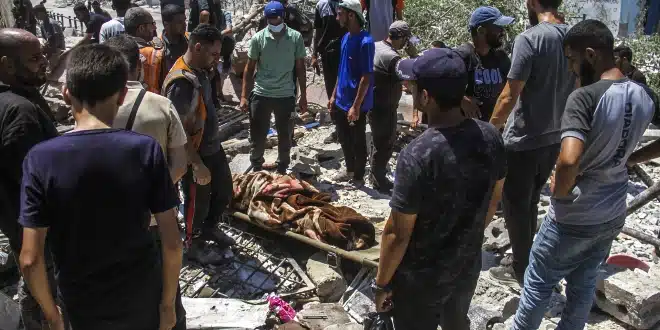Israeli warplanes conducted a series of airstrikes on Tuesday targeting the Wadi Faara area in Lebanon’s northern Bekaa region, with one of the strikes reportedly hitting a Syrian refugee camp. According to Lebanon’s state-run National News Agency, the attack left 12 people dead, including seven Syrians, and injured eight others.
Multiple Strikes and Rising Tensions
A local security source told Reuters that among the dead were five fighters affiliated with Hezbollah. Meanwhile, another Lebanese security official informed Al-Jazeera that three separate Israeli strikes were launched in Wadi Faara, one of which destroyed a construction excavator.
It remains uncertain whether these airstrikes were part of a broader offensive that saw Israel carry out 15 separate bombings earlier the same morning. Those earlier strikes reportedly targeted Hezbollah training installations throughout the Bekaa Valley.
The Israeli military confirmed the operations, stating that its fighter jets were engaging what it called “terrorist infrastructure” operated by Hezbollah’s elite Radwan Force in eastern Lebanon. These operations came despite an existing ceasefire agreement between the two sides.
In an official statement, the Israeli Defense Forces (IDF) said the facilities being hit were used by Hezbollah militants for training purposes in preparation for attacks on Israeli targets. The statement added that although Radwan Force commanders were eliminated in a previous Israeli operation in Beirut and southern Lebanon in September 2024, the unit had since resumed efforts to rebuild its capabilities.
The Israeli military further argued that Hezbollah’s continued activity in these areas violated ceasefire terms and posed an ongoing threat to Israeli security.
Political Response and Regional Implications
Israeli Defense Minister Israel Katz issued a stern warning in the wake of the attacks. Calling the strikes “a clear message,” Katz held both Hezbollah and the Lebanese government accountable for any breaches of the ceasefire agreement. “We will strike every terrorist and thwart any threat to the residents of the north and to the State of Israel,” he said, vowing to retaliate with “maximum force” against any Hezbollah efforts to regroup.
These latest strikes underscore the fragility of the truce reached in November 2024. The ceasefire was intended to end more than a year of violent exchanges, including a two-month full-scale conflict that significantly weakened Hezbollah’s capabilities. Under the terms of the agreement, Hezbollah had agreed to reposition its forces north of the Litani River—approximately 30 kilometers from the Israeli border. In turn, Israel was expected to withdraw completely from Lebanese territory, although it continues to maintain military positions in five strategic locations.
Despite the ceasefire, the recurrence of violence—particularly Israel’s persistent targeting of Hezbollah-linked sites—illustrates the volatile and unresolved nature of the Israel-Hezbollah conflict. The attacks on refugee-populated areas also raise humanitarian concerns, especially given the complex demographic landscape in Lebanon where thousands of displaced Syrians live alongside local and militant communities.


